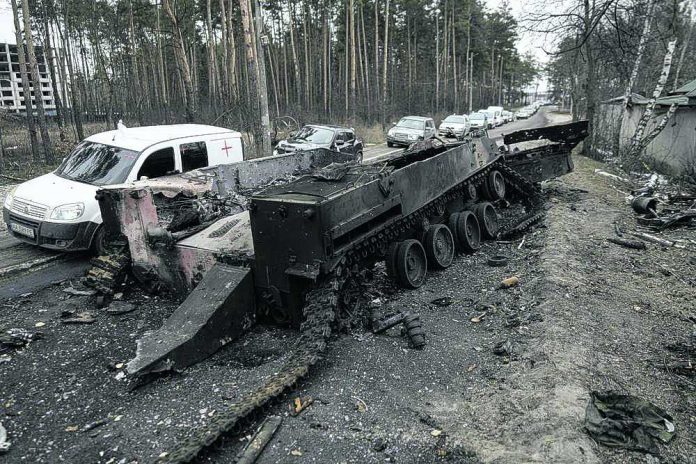(AP) — Thousands of patients in Ukraine are receiving lifesaving medicines to treat HIV and opioid addiction through a U.S.-funded group still operating despite the Russian invasion. Supplies are running short and making deliveries is a complicated calculus with unpredictable risks.
Officials say the quiet work of the Alliance for Public Health shows how American assistance is reaching individuals in the besieged nation, on a different wavelength from U.S. diplomatic and military support for the Ukrainian government.
The Ukraine-based humanitarian organization has operated for more than 20 years. It has received millions of dollars from the U.S. Agency for International Development as well as the Centers for Disease Control and Prevention, and other federal programs to counter HIV globally.
Executive director Andriy Klepikov said shutting down was not an option during the invasion. Ukraine has one of the most serious HIV epidemics in Western Europe, and patients need their medications daily.
He said his group made a “risk management plan” to continue its work if fighting broke out. But it did not envision the scale of the onslaught unleashed by Russian forces, and that has forced the group to adapt.
In areas of Ukraine that have escaped the worst, the organization is still able to deliver medications via postal and parcel services. For refugees who have left the country, caseworkers are making connections with aid groups that can restock medications. In places under attack but still in Ukrainian control, medical vans are bringing in supplies via convoys. The group has even been able to get some deliveries into Russian-controlled areas, with the help of intermediaries. It also is distributing medicines for tuberculosis.
Asked how long it can keep going, Klepikov responded:
“We Ukrainians are quite resilient. I am not the best soldier. But in the area of medicine, humanitarian work, public health, human rights __ that’s my area, and I will do the maximum possible.” He was interviewed by telephone several times recently.
“We are still serving thousands of people” with medications, Klepikov said. “It’s more than five thousand.”
The group’s fleet of medical vans has been pressed into service to transport injured civilians to hospitals that can treat complex cases, and to deliver essential supplies for daily living.
U.S. officials say they have been impressed with the attitude of the Ukrainians, which evokes the tenacity of Britons during the London Blitz in World War II.




















